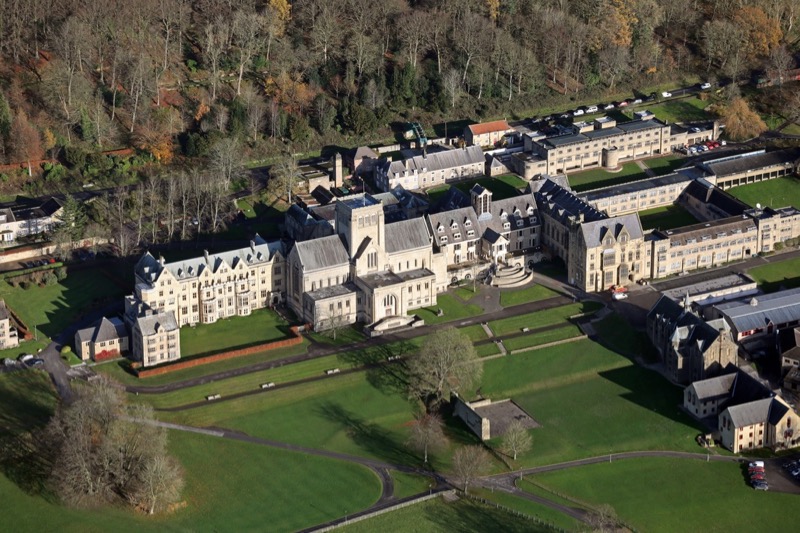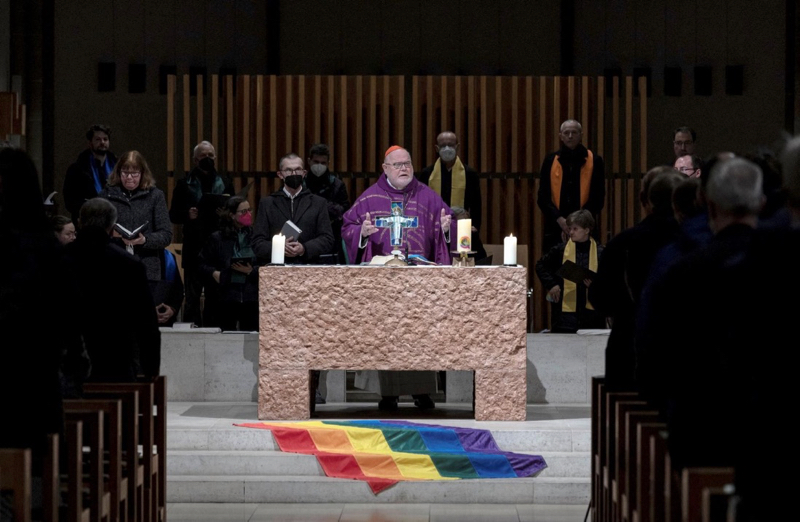The Archbishop of Munich, Cardinal Reinhard Marx, has apologised for the Church's discrimination against homosexuals at a festive Mass on the 20th anniversary of services for self-identified “queer” LGBT Catholics at St Paul’s church in Munich.
After Mass on Sunday 13 March, Marx thanked those who attended “for their patience”. He admitted that in his early years as Archbishop, from 2007 onwards, the services for LGBT Catholics “were merely tolerated rather than officially appreciated”. The services were initiated by a group of volunteers and a pastoral assistant in 2002.
The Church must now “step by step” become an inclusive instead of an exclusive institution, Marx said.
Meanwhile, at their four-day conference plenary from 7 to 11 March, the 66 bishops of the German Catholic church struggled to heal divides within their Church amid a controversial synodal process and the Cologne Archdiocese's ongoing crisis over historic clerical abuse.
Three main subjects dominated the Bishop's plenary: the German synodal procedure, the crisis in the Archdiocese of Cologne and the war in Ukraine.
The bishops spent two days debating the basic theological principles of the controversial issues they are discussing together with the lay members of the Central Catholic Committee (Zdk) at the German synod - such as canon law on homosexuality and the ordination of women. Broader questions as “What is sexuality?” and “How does canon law change over time” also made the agenda.
In contrast to the German synodal process, where speaking time is often limited to just one minute, at the plenary the bishops were allowed six minutes each. A conservative minority of bishops who remain sceptical of the necessity and urgency of church reform were allowed to have their say.
The possibility of a minority of at least 23 bishops blocking reforms at future synodal procedure meetings, which is feared by the reformers but longed for by conservatives, has not gone away but now seems less likely.
Conference president Bishop Georg Bätzing of Limburg said he was very irritated by the open letters from both the Polish and the Nordic Catholic Bishops in which they had openly expressed misgivings about the reforms being discussed at the German synod.
The bishops also discussed the ongoing tension in the archdiocese of Cologne. Back at his post as Archbishop of Cologne after four months “time out” at the Pope’s wish, Cardinal Rainer Maria Woelki was able to tell the bishops how he saw the situation in Cologne. His fellow bishops for their part informed Woelki how greatly the crisis in Cologne was affecting their dioceses. In his final report, Bätzing said Woelki had earned a “second chance”.
On the war in Ukraine all the bishops condemned Russian aggression, though opinions on the newly-permitted export of weapons to conflict zones differed with the military bishop in favour but other bishops against.



 Loading ...
Loading ...